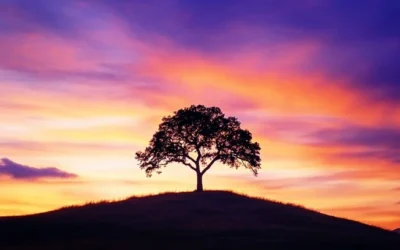A swirling mix of nerves and excitement coursed through me as I waved my family goodbye and the sliding doors closed behind me at Melbourne airport.
I was 21 and, armed with little more than a backpack and some travelers’ checks (remember those?), I was embarking on a yearlong around-the-world adventure. It was one of my first plane flights so to say I was a ‘green behind the ears’ traveler understates how green!
The year that followed held many ‘adventures.’ Some fun. Some not-so-fun. Yet that experience, and my many adventures since, have taught me that life’s most worthwhile endeavors – whether it be exploring the world, pursuing a big goal, or sharing your deepest self with another – require breaking ranks with our comfort zone and taking the very actions our fear would have us avoid.
Of course, not all fear is bad. If our brains weren’t exquisitely adapted to alert us to potential dangers and protect us from injury, we wouldn’t be here now. It’s just that for most of human history we didn’t live in a digital fear economy engineered to stoke insecurity and heighten our perception of vulnerability.
So my reason for writing this now (and for doing my recent TEDx talk below) is not to encourage you to throw caution to the wind. Rather it’s to invite you to reflect on where you may be letting your fear of what you don’t want keep you from taking the very actions that would move you toward more of what you do want.
More connection. More influence. More contentment. More peace. More impact. More joy.
Let’s face it, if it were easy to resist the gravitational pull of the status quo, more people would. It’s why, in today’s culture of fear, we must be extra vigilant to discern the fears that are serving our highest good from those which are shrinking our future; keeping us living too safely, settling too fast and selling out on the person we could be…. if only we had the guts.
When assessing options, our brains are wired to overestimate the risks, to discount inaction and to rationalize indecision, procrastination, and playing it safe. As psychologist Daniel Kanahem found our brains are twice as sensitive to potential losses as they are to potential gains.
Yet the price we pay for avoiding a potential loss –for not making that ask, not taking that chance, not raising that issue, not risking that rejection – is never immediate and rarely obvious. Timidity rarely makes headlines. But never underestimate the hidden tax of timidity – on your family, on your relationships, your team/business, your career, your life.
Of course, the brave path offers no guarantees. But as Richard Branson shared with me, he’s learned far more from his failures than his successes. But it’s not just what you learn that matters, it is the person you become by daring to be more than the person you’ve been up until now.
The highest reward from choosing courage over comfort doesn’t flow from what you achieve, but in who you become in the process: the wisdom you learn, the gifts you grow, the connection you forge and the lives you lift.
The bad news? There’s no shortcut to courage; no magic bullet to bravery.
The good news? Courage isn’t a personality type. It’s a skill. Like playing piano or learning to bake. So like all skills, it can be learned. With practice (often more than we’d like.)
This is why it is always good to ask yourself this question:
Is the short-term pay-off you get from sticking with the status quo worth the long-term price tag?
If you can’t answer with a clear yes, then perhaps it is no.
History has taught us that fail more from timidity than over daring. So don’t wait for certainty. Don’t wait to feel ready. And don’t wait for your doubts to disappear or your fears to raise the white flag. Fear will never surrender. Rather it will double down, making sure you feel its presence in your body.
Butterflies in your belly. A dry throat. Shaking legs. Racing heart. Sweaty palms.
I felt them all many times. And sometimes my fear has won. Always to my regret. Yet the times it hasn’t have taught me some invaluable lessons. Like that…
- By naming your fear, you help to tame it
- Fear appears in many guises, from mild-mannered self-doubt or self-pity to imposter syndrome, excuses, procrastination, perfectionism, pride, and righteous indignation.)
- We are braver than we know and can do more than we think
- Our strength lays in our vulnerability (a whole chapter in You’ve Got This!)
- Embracing our least comfortable emotions is the ticket price for creating a life we love, and most of all…
- Each time you take action in the presence of ear, you dilute its power and reclaim your own
So let me ask you:
What would you do if you were being brave?
Whatever the answer, stand tall in your power then take one step, however small, in whatever direction your true self beckons.
Butterflies or no butterflies.
The future you most want is riding on it.






